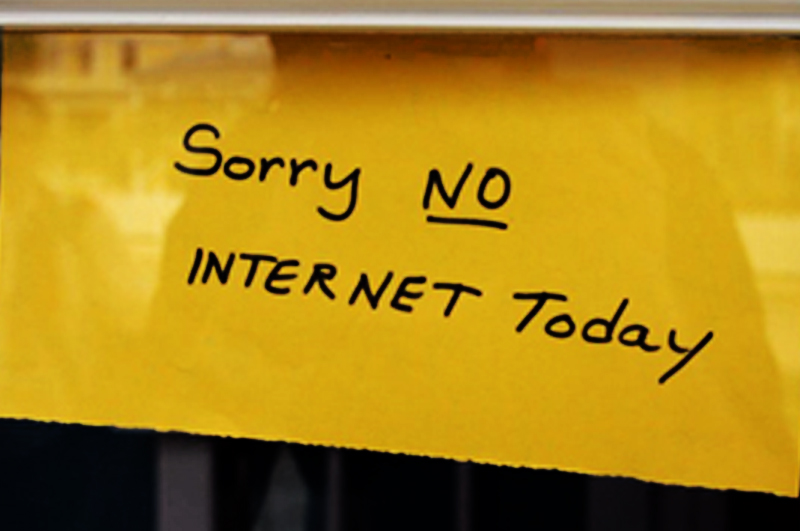Two days after Iran shut down the Internet for millions of citizens amidst protests against the killing of Mahsa Amini, the United States eased existing sanctions on Iran to “expand the range of Internet services available to Iranians”.
While it may seem counter-intuitive, the U.S. Department of the Treasury’s action recognized something important: sanctions can have the unintended impact of preventing people from accessing the Internet at a time when they need it most. That’s because sanctions can prevent service providers from offering other connectivity options to avoid a country’s attempt to cut them off from the Internet.
It is easy to understand why countries are quick to condemn those who issue Internet shutdowns. Shutdowns are an intentional disruption of Internet-based communications, preventing access for a specific population, location, or mode of access. They are often done to control the flow of information, and the impact can be devastating on many levels.
But it is important to understand that sanctions can have the same impact—even if it is not the intention.
This isn’t the first time Iran has shut down the Internet. The Internet was shut down for over 80 million people in Iran in November 2019 following mass protests that erupted after a significant overnight rise in the price of fuel. This prevented people from organizing protests and getting access to free flow of information. At the same time, the world outside Iran was shielded from the true scope of casualties.
In the latest shutdown, which is the largest one for the country since then, the government has blocked mobile Internet service impacting people’s access to services such as Whatsapp and Instagram. With over 80 per cent of the population’s Internet access through mobile connection, the restriction has been detrimental to the economy, as well as people’s livelihoods and ability to stay in touch with loved ones. The Internet Society has a deeper overview of the technical and human impact of the shutdown on Internet Society Pulse.
As countries consider how they support people in times of crisis, it is crucial to ensure that sanctions do not have the same impact as shutdowns: shutting out ordinary people from access to a critical lifeline when they need it most. In a crisis, people need more Internet access, not less. Political actions to prevent people in other countries from access to the Internet—whether intended or not—could set a dangerous precedent that leads to our worst-case scenario: a splinternet.
To understand the splinternet, simply picture a dystopian future where the globally connected Internet that has empowered people worldwide shatters into a collection of isolated islands that do not talk to one another. Sadly, Iran is already well on its way there.
We raised concerns on how geopolitical actions could fragment the Internet earlier this year as many countries rallied to condemn Russia’s invasion of Ukraine. Sanctions regimes were having the unintended impact of preventing people in Russia from accessing the Internet. We called for countries to ensure sanctions had exemptions to prevent hindering Internet access, and fortunately many listened. But there are still plenty of sanctions regimes targeting different countries around the world—and many without consideration to ensure people can access the Internet.
When Internet access becomes a pawn of geopolitics—whether through sanctions or shutdowns—we all lose. Each of us has a responsibility to protect and defend the Internet to ensure everyone who wants the Internet can use it to its full potential. And when it comes to supporting people in times of crisis, we must not hinder free and open access to a critical lifeline for civilians–their Internet connections.
Three ways you can help protect people’s access to the Internet:
- Share this message on your social networks: “Internet shutdowns and sanctions that deny Internet access harm people when they need the Internet the most. #keepiton #protecttheInternet #stopthesplinternet”
- Ask governments worldwide to help #ProtectTheInternet. You can share our splinternet explainer, and ask officials to make Internet Impact assessments a standard practice for new rules and regulations.
- If you see something, say something. Learn what causes a splinternet, and let us know if you spot any threats near you by contacting [email protected].
Image credit: Marcelo Graciolli

